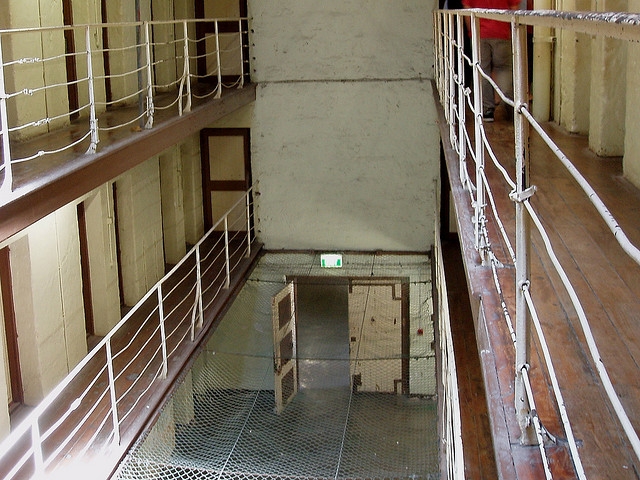
Vuyesihle Magagula is 21 years old and seven months pregnant. In December of last year, her mother, Shell Dlamini, went to Court and had her daughter committed … to prison. Vuyesihle’s boyfriend, Colani Dlamini, then informed Vuyesihle’s father, Zephaniah Magagula, about Vuyesihle’s incarceration. Vuyesihle’s parents are separated.
Vuyesihle Magagula sat for a month in Mawelawela Correctional Facilities for a month. There never was a charge against her. There never was a claim that she had committed any crime or broken any law.
Today, January 22, 2013, the High Court ordered Vuyesihle Magagula to be released from prison. The Court agreed with Vuyesihle’s father that his daughter was of sound mind and had not been charged with any offense. Therefore her imprisonment was a violation of Chapter III of the Constitution of Swaziland, “Protection and Promotion of Fundamental Rights and Freedoms.”
The Court also agreed that prison is not a good place for pregnant women.
Prison is not a good place for pregnant women nor for women who have not been charged with a crime.
Swaziland has 12 prisons. Mawelawela is the one for women. The Swazi prison system is full to bursting, with government reports that there’s no more room at that inn. Much of the overcrowding is made up of prisoners awaiting trial. Something like 25% of prisoners are remand prisoners. But they’re treated exactly the same as convicted prisoners, sharing the same cells, occupying the same time. Torture is common, beatings are common, and rape is common as well. Juvenile offenders and juveniles awaiting trial, children, are often thrown into the adult prisons. There aren’t enough beds, and so what is a State to do?
Of the twelve prisons, Mawelawela isn’t the worse. It’s not overcrowded. Around 15% of its prisoners are awaiting trial. Some children are living with their mothers at Mawelawela. They’re not in special wards. As elsewhere, juveniles and `detainees’ are part of the general population. On the other hand, Mawelawela is said to be “clean”. That’s something, right?
Mawelawela may not be the worst place, but it’s not the right place. Prison is not a place for `wayward girls.’ Vuyesihle Magagula is not the first to be sent to prison for `protection.’ Last December, as she sat in prison, His Majesty’s Correctional Services Commissioner, Mzuthini Ntshangase, announced that prison was open to unruly and naughtly children. Send them over to us, and we’ll teach them. Ostensibly, girls like Nomthetho and Tebenguni are given `a second chance.’
A second chance. Swaziland has the world’s highest incidence of HIV, with 43% incidence of HIV among pregnant women. Vuyesihle Magagula is the face of HIV in Swaziland, and, whether or not she’s HIV+, prison is not a solution to anything.
In the last ten years, infant mortality in Swaziland has increased by 26%. Maternal mortality has increased by 160%. And somehow, in this landscape of mathematics and morbidity, prison is a second chance?
Around the world, `troublesome’ and `troubled’ girls, girls like Ashley Smith in Canada, are sent to prison … for their own good. Ashley Smith died while seven guards watched. They were only following orders. Let’s apply the common and juridical sense of the High Court of Swaziland to the world. Prison is not a good place for pregnant women. Prison is not a good place for children. Prison is not a school, mental health facility, or resource for stressed parents and strained communities. Invest in children. Close the prisons, and open schools, clinics, community centers, and libraries. Do it now.
(Photo Credit: pikerslanefarm/Flickr)